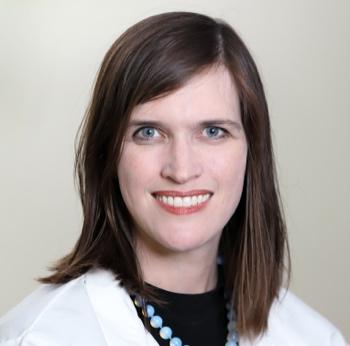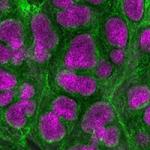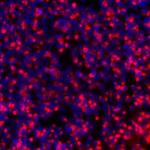
Research Topics
The mission of the Metabolic Bone Disorders Unit is to enhance health and well-being for children with skeletal disorders by developing novel diagnostic tools and treatments informed by studies of physiologic mechanisms. Our work focuses on rare disorders of bone metabolism, specifically the complex bone and endocrine disorder fibrous dysplasia/McCune-Albright syndrome (FD/MAS). This mosaic disease results from gain-of-function mutations in Gαs, resulting in ligand-independent activation of G-protein coupled receptor/cAMP-dependent signaling pathways. Clinical observations from the care and study of patients with FD/MAS and other skeletal disorders create hypotheses based on unmet needs. Basic and translational studies investigating these hypotheses improve our understanding of skeletal physiology. By integrating across model systems, we apply this knowledge to enhance care and quality of life for patients. This approach has successfully characterized key aspects of FD/MAS pathophysiology, translated into clinical trials, and defined the current standard of patient care.
A Peek Inside the Boyce Lab
Biography
Dr. Boyce completed her pediatric endocrinology fellowship training in the NICHD Program on Developmental Endocrinology and Genetics, and her pediatric residency and medical training at Eastern Virginia Medical School in Norfolk, Virginia. She has held current and previous faculty positions in the NIH Pediatric Endocrinology fellowship training program and Children’s National Hospital. She is active in the patient advocacy community and serves as a Medical Advisor to the FD/MAS Alliance.
Selected Publications
- de Castro LF, Whitlock JM, Michel Z, Pan K, Taylor J, Szymczuk V, Boyce B, Martin D, Kram V, Galisteo R, Melikov K, Chernomordik LV, Collins MT, Boyce AM. RANKL inhibition reduces lesional cellularity and Gα(s) variant expression and enables osteogenic maturation in fibrous dysplasia. Bone Res. 2024;12(1):10.
- de Castro LF, Michel Z, Pan K, Taylor J, Szymczuk V, Paravastu S, Saboury B, Papadakis GZ, Li X, Milligan K, Boyce B, Paul SM, Collins MT, Boyce AM. Safety and Efficacy of Denosumab for Fibrous Dysplasia of Bone. N Engl J Med. 2023;388(8):766-768.
- Szymczuk V, Taylor J, Michel Z, Sinaii N, Boyce AM. Skeletal Disease Acquisition in Fibrous Dysplasia: Natural History and Indicators of Lesion Progression in Children. J Bone Miner Res. 2022;37(8):1473-1478.
- Geels RES, Meier ME, Saikali A, Tsonaka R, Appelman-Dijkstra NM, Boyce AM. Long Bone Fractures in Fibrous Dysplasia/McCune-Albright Syndrome: Prevalence, Natural History, and Risk Factors. J Bone Miner Res. 2022;37(2):236-243.
- Gun ZH, Osamor C 3rd, Taylor J, Li X, Szymczuk V, Boyce AM. Serum Phosphorus as a Driver of Skeletal Morbidity in Fibrous Dysplasia. J Clin Endocrinol Metab. 2024;109(5):1334-1340.
Related Scientific Focus Areas
This page was last updated on Monday, June 23, 2025




